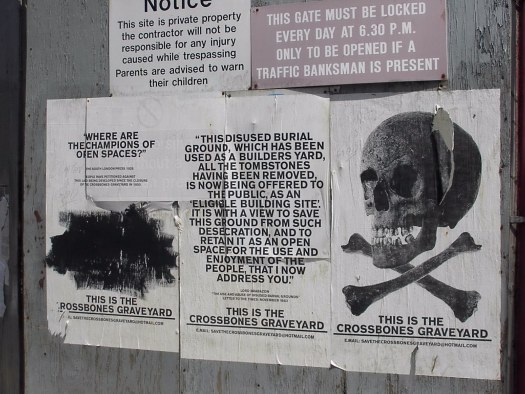February 20, 2004
RAMBLES

Just a few connections, really.
Much to take up in Simon's contribution to the ruinationalist discussion, but these remarks on boredom leapt out after reading Burchill's essay on Graham Greene ('Greeneland') yesterday. Simon: 'went through a phase recently of feeling nostalgic for boredom, the kind you felt as a suburban child in the uk in the 70s -- the utter sense of privation experienced on a Sunday around 6 PM when it was just religious programmes... the dearth of stimuli... tv used to go off in the afternoons, there was just a testcard... no night time tv... no web, none of the surfeit distractions kids today have... it was almost spiritual, the sense of oppression weighing on the soul, nothing to relieve the tedium... it was enriching in the sense that you were forced to develop an imagination to survive it)'
Burchill, from 'Greeneland':
'All sensitive adolescents, capable of so much yet powerless to effect any real change in their lives, feel boredom more strongly than any other emotion, but it is something they break out of when they break into the big world - a benign boredom, a skin that can be shed and kept dead. Greene's boredom was a rare strain - a malignant boredom that I believe he cultivated as an elegant escape from the ultimate horror to the sensitive young - heartiness, bearing down on him mercilessly in the shape of robust, public school, Anglican normality.
"I was seventeen and terribly bored and in love with my sister's governess - one of those miserable, romantic loves of adolescence that set in many minds the idea that love and despair are inextricable and that successful love hardly deserves the name. At that age one may fall irrevocably in love with failure, and success of any kind loses half the savour before it is experienced.' (The Lost Childhood)."'
Simon also says that 'obviously Starbucks or Burger King or whatever could be seen as corresponding to Global UberPop Brands like Britney or Justin T... reliable pleasure lacking any local character, pure product, homogenizing, Americanizing etc etc -'
This closely parallels what Ratz, one of Momus' correspondents says about 'uberculture': 'Uberculture is the pervasive culture that is shared by both mass culture and counter/subculture. Kind of the same idea as pop culture, but more mundane. Think of coca cola. Everybody drinks coca cola. The president, the gutterpunk, and the businessman. Andy Warhol once wrote about America being so equal because of its products. If the queen of England went to a baseball game at Yankee Stadium, she couldn't get a hot dog that was any better than the one the guy in the ten dollar seats can get. You also can't, no matter how much money you spend, get a better coke than the one the bum on the street spent fifty cents for.'
And that in turn reminded me of something Robin wrote about the 'auto-collapse of any trade which did not seek to expand its market universally, ie catered to the gentry' and the decline of the luxury brand. 'In truth there are no 'luxury brands' - if there were, they wouldn't really be 'brands' in the sense we understand the word. The idea of a luxury brand is a contradiction, it aspires to be something it can only ever recreate as a simulacra, and dishonestly, because of its inherent aspiration to universality. (This is little more than an extrapolation from Nietzsche of course. And as good liberals warn us, we pursue it at our peril. But let's pursue it anyway).'
This makes me think that there is something aristocratic in the taste for decline and ruin: the resistance to Uberculture is in every sense an objection to levelling, to democratization. Course as Mark Sinker points out in the comments to the Ruins photo-post below, as far back as the 17C it became fashionable for gentlemen to CONSTRUCT ruins . The image at the head of the Ruinationalism post was actually Robert Adam's (c.1759) Design for an Artificial Ruin in the Park at Kiddleston.
As for the music parallels to ruinationalism, I obviously baulk at the suggestion that its sonic equivalent is Britpop. That's because ruinationalism is not straightforwardly nostalgic in the way that Britpop was: it doesn't seek to pretend that the past is still in place, that we can relive it. No: ruinationalists don't want to revive, they precisely glory in the current state of dilapidation (the dilapidation that is the present). As for the contradictions with the taste for Futurism in music, well, Science Fiction has a real taste for the ruined. The overgrown city. That's part of what's always appealed to me about John Foxx. Check out his story 'The Quiet Man' (a beautiful exploration of the overgrown city meme: 'At the bottom of Oxford Street stood the tall Centrepoint tower, its remaining upper windows glinting, while most of the base was covered in vines, mile-a-minute vine especially had grown out from many of the gardens, and living up to its name , had swamped quite a number of roads and buildings in the city') and his photographs of overgrown statues (some of which I've reproduced here).

cf also Justin Barton's 'Future Terrains' which imagines a 'wildization' of the British landscape. 'Much of Northumberland is now woodland; there is forest all the way from the west of Buckinghamshire to the Severn river.'
Perhaps the greatest sonic parallel is the imagined 'mechanical uncanny' music Robin dreams up, inspired by fairground music, faded recordings of folk tunes, and St Etienne. Of the latter's Foxbase Alpha Robin writes memorably: 'Anglophile dub, endlessly expanding cotton mists of reverb suddenly blossoming into starchy medleys of peculiar pop. Recited inventories of tube stops, BBC-accented voices echoing through sooty underground tunnels. There’s something special in this album that I never found with any of their later material, not only in its appealing enthusiastic-amateur sonic constructions but also the sense of the group’s groping, in a bleary haze of PG Tips, woodbines and wednesday afternoon TV black and whites, to articulate the half-imagined lost world, merrie england manqué.'
tv used to go off in the afternoons, there was just a testcard... no night time tv...
Bliss.
Posted by: sphaleotas at February 20, 2004 01:34 PMnot to make too much of this but--
i grew up in berkhamsted where Greene lived as a boy (and tried to commit suicide several times as a teenager) and i went to the same minor public school as Greene (his dad was headmaster), swam in the same pool that he dove into after swallowing deadly nightshade ('it felt like swimming through cotton wool' he wrote in his memoir)
berko's actually a nice place to grow up but i do remember a sort of cosmic boredom descending regularly -- esp Sundays in winter
the boredom i feel sometimes nowadays has a total different quality, the ennui of someone with thousands of entertainment-sources to hand -- unread books, unlistened and not-listened-enough cds, tv with hundreds of channels, the web etc etc etc-- a brittle, dissatisfied, distracted boredom that doesn't lend itself to reverie
Posted by: simon r at February 20, 2004 03:25 PMsurely a more noble and aristocratic sonic equivalent (apart from the moz, obviously) would be The Fall ('It's Hard to Live in the Country')
Posted by: undercurrent at February 22, 2004 03:50 AM